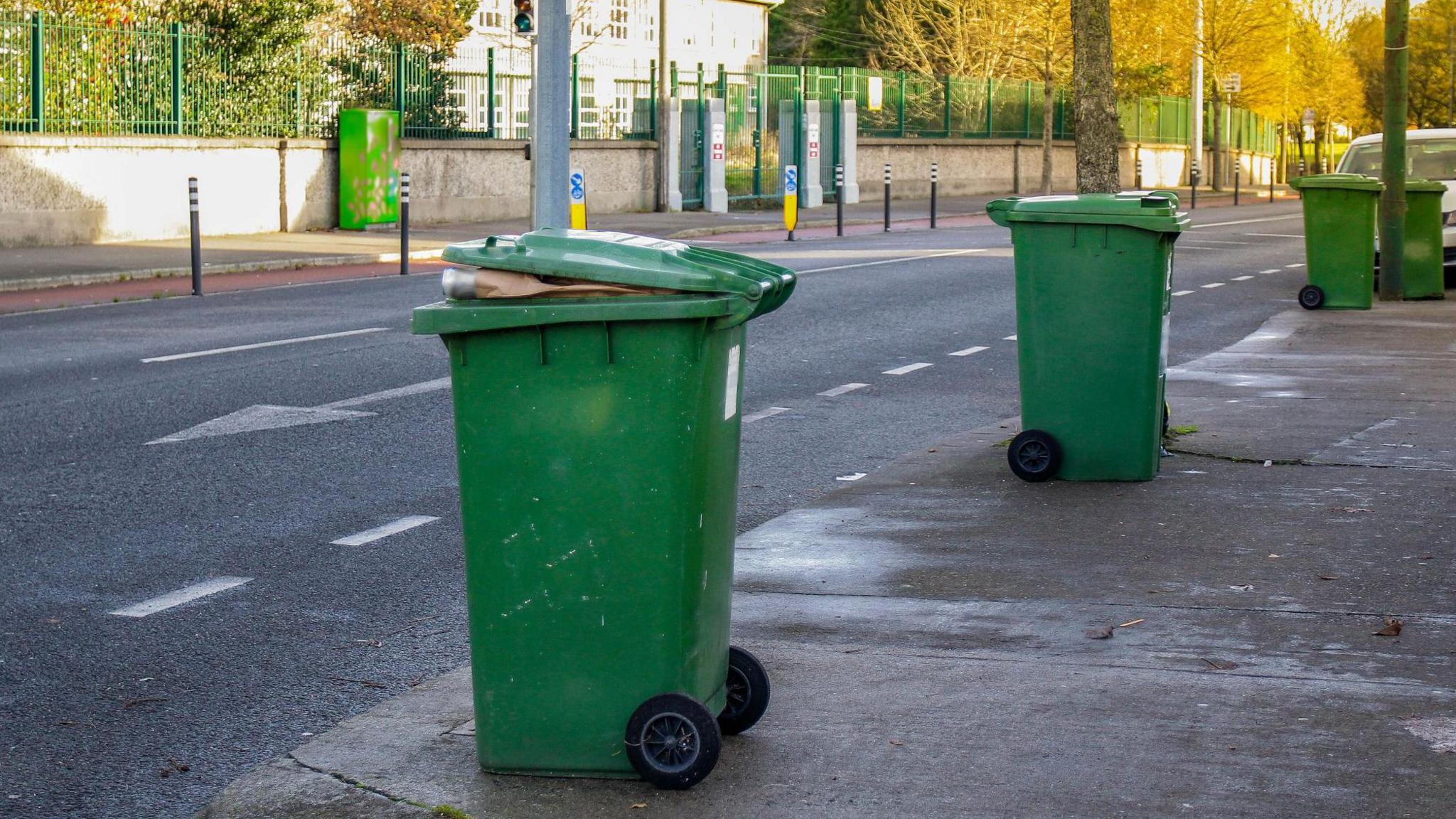The journey that city's recycled glass will take
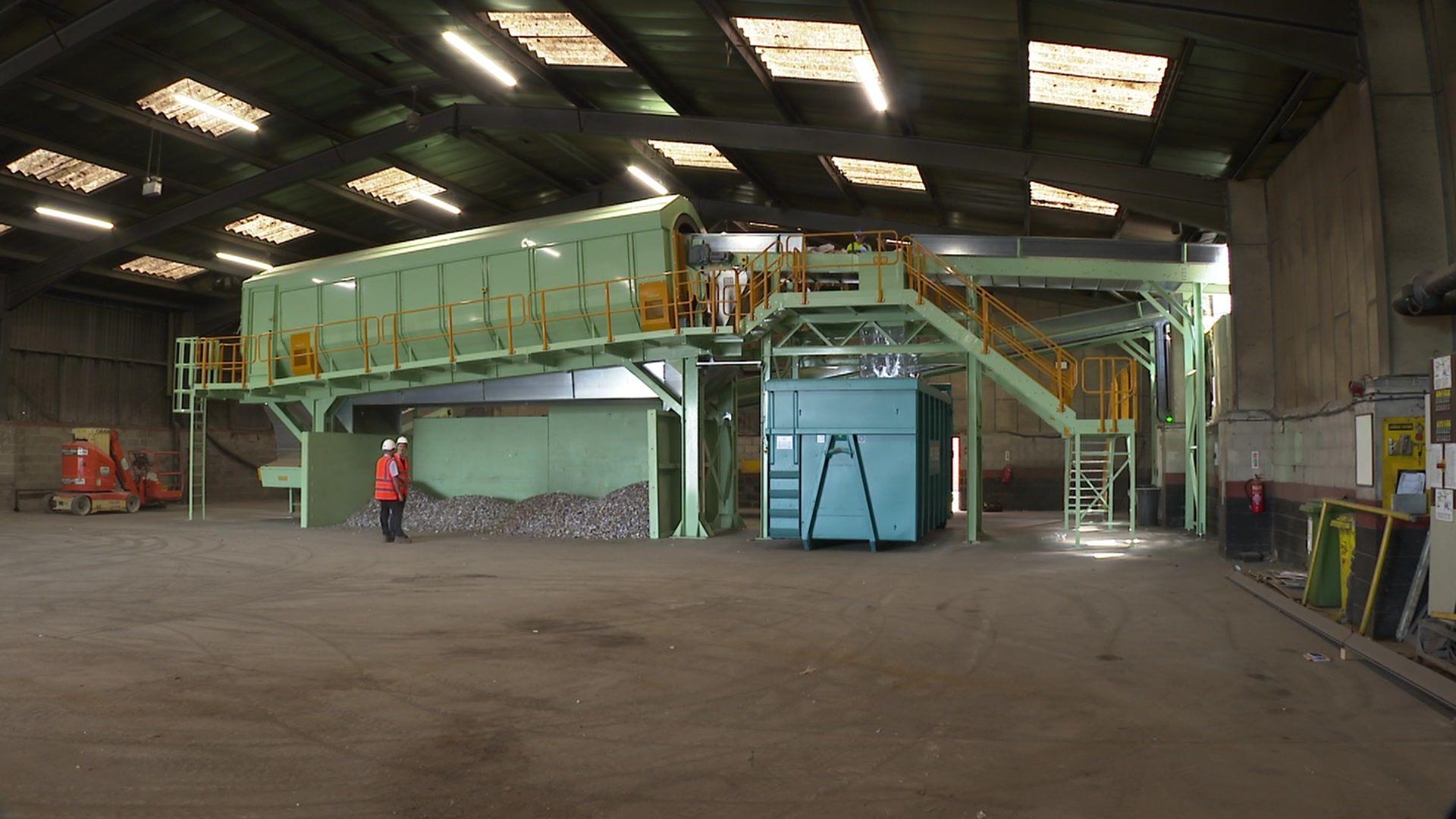
The new piece of equipment is called a 'trommel' and can sort glass from other rubbish
- Published
Thursday 1 August is a day many Leeds households have been looking forward to for a long time.
Glass can now go into green bins and be taken away as part of the normal refuse round.
The city has invested in technology that can sort glass from other materials during the recycling process.
Projections expect refuse workers to collect 20,000 tonnes of glass per year from city doorsteps, and the BBC was given a tour of the recycling plant where the waste will be sent.
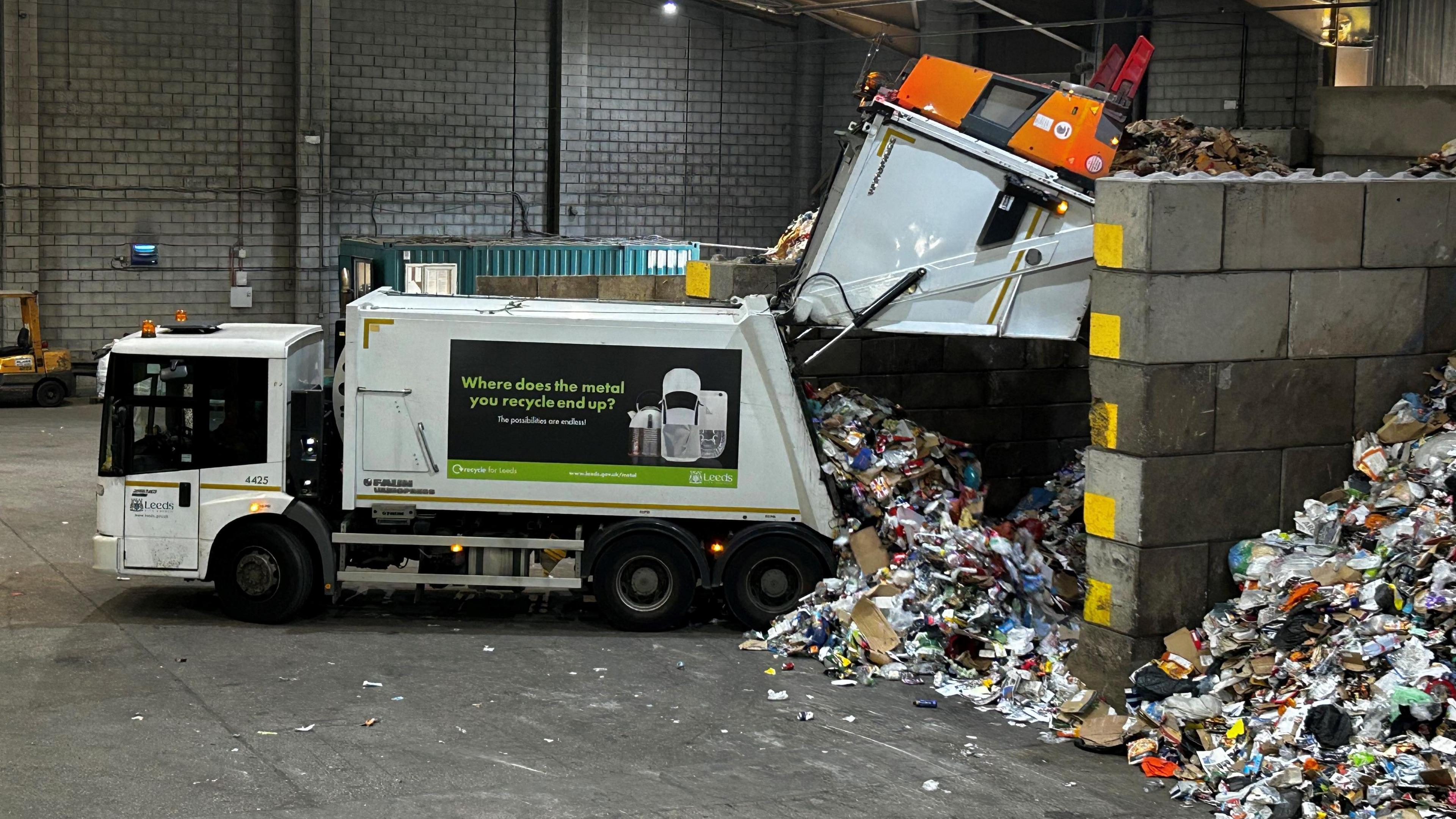
All green bin material is separated and sorted at HW Martin in Leeds
HW Martin Waste Ltd in Hunslet is contracted to separate and process the city's rubbish.
The contents of every green bin in Leeds will be taken to the company's site, and a new, £750,000 machine will prepare the glass for reuse.
Initially, the trommel machine is used to check and separate different materials.
The council previously considered providing residents with a third bin for glass-only, but decided that this would cause inconvenience.
Instead, a network of 700 bottle banks was set up across the city, and these will remain in use.
About 8,000 tonnes of glass is taken to the banks by householders each year, with a further 11,400 tonnes believed to be thrown away as general rubbish.
The sorting process
Declan Nortcliffe, operations director at HW Martin, said the new machinery worked like a "washing machine drum with lots of holes in it".
"The holes then allow to glass to drop out," he added.
After cleaning, the glass is sent to Beatson Clark in Rotherham.
The glass manufacturer, founded in 1751, will crush and sort the items by colour.
Non-experts may call it broken or crushed glass, but in the trade this is known as cullet.
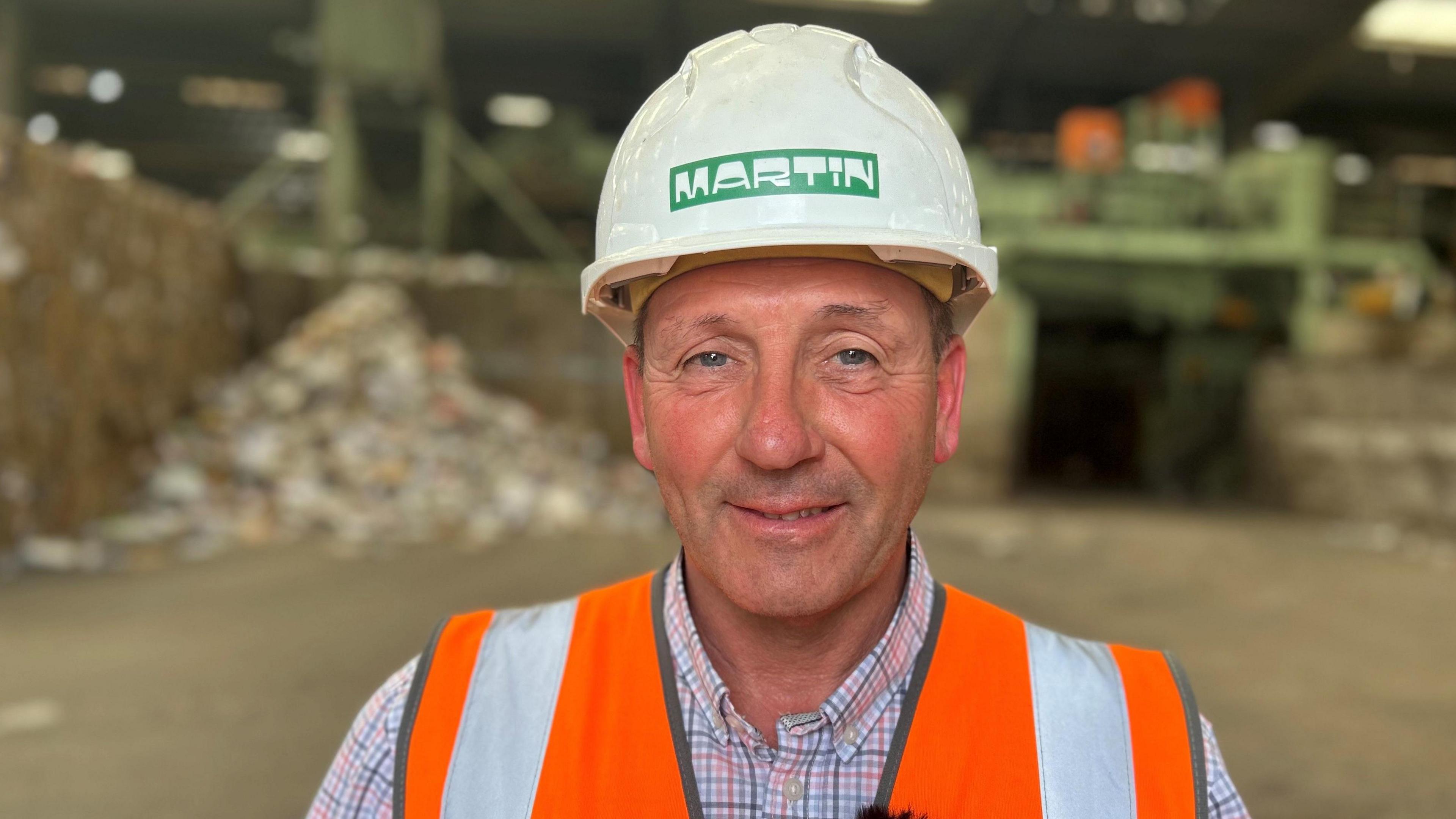
Declan Nortcliffe said the new glass recycling function had been a "challenge"
The cullet is then melted in a furnace before it is placed into moulds that are used to make new glass bottles.
When I visited, there was talk that the new bottles were for a gin manufacturer, but there are a variety of customers and uses which change with demand.
It takes only 30 days for the new bottles to be filled with their contents and distributed to retailers across the UK.
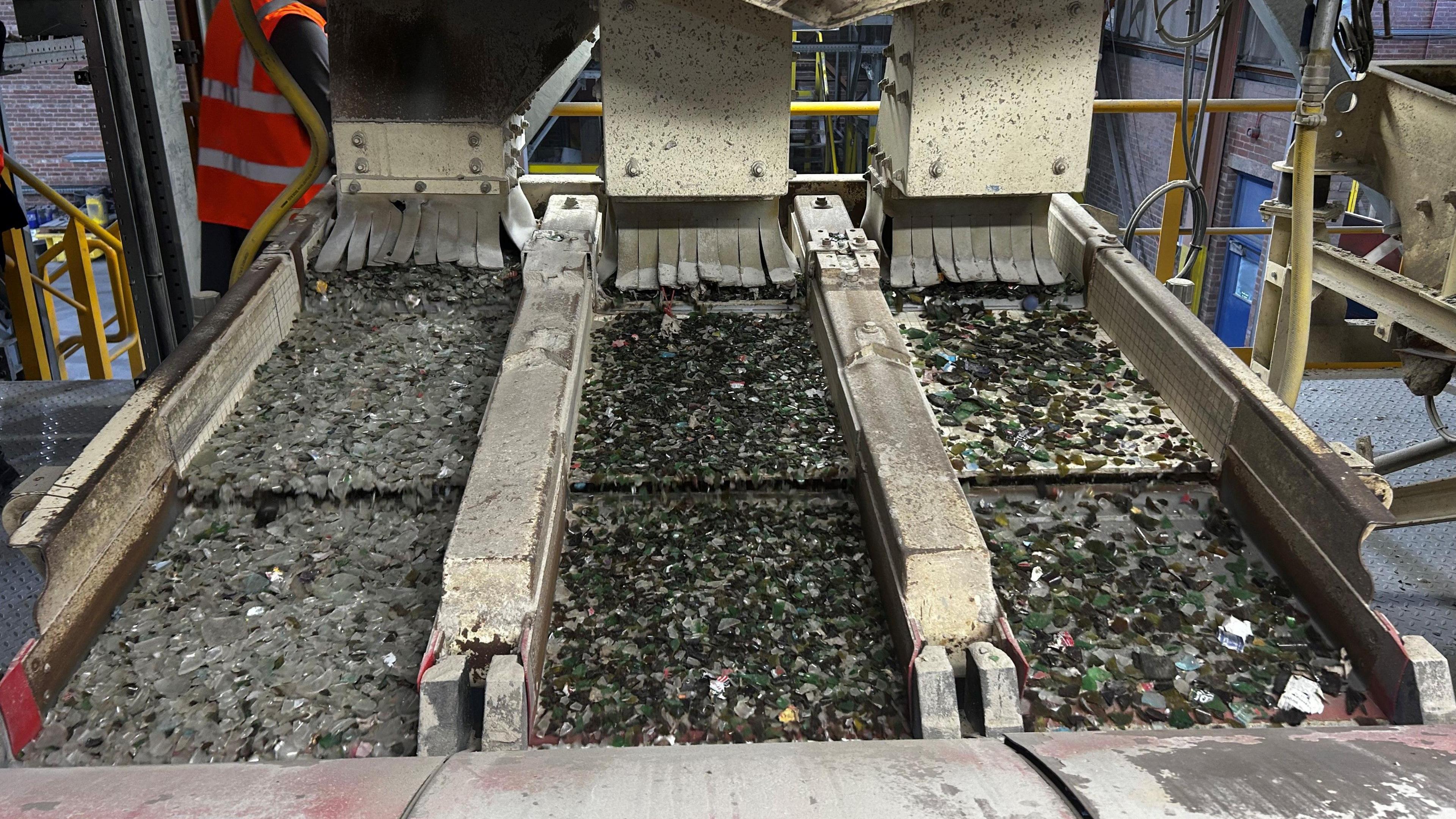
The cullet is sorted into clear, brown and green glass
Mohammed Rafique, Leeds City Council's executive member for climate, energy, environment and green spaces, said: "It will be a win-win all round and we can’t wait to get it started."
Mr Rafique said the move would "help make a significant difference to our recycling rates and benefit the environment and the local economy".
He added: "This is part of providing simpler recycling opportunities and choices for Leeds residents, without creating more bins for them to manage and put out on the streets."
Related topics
- Published11 July 2024
